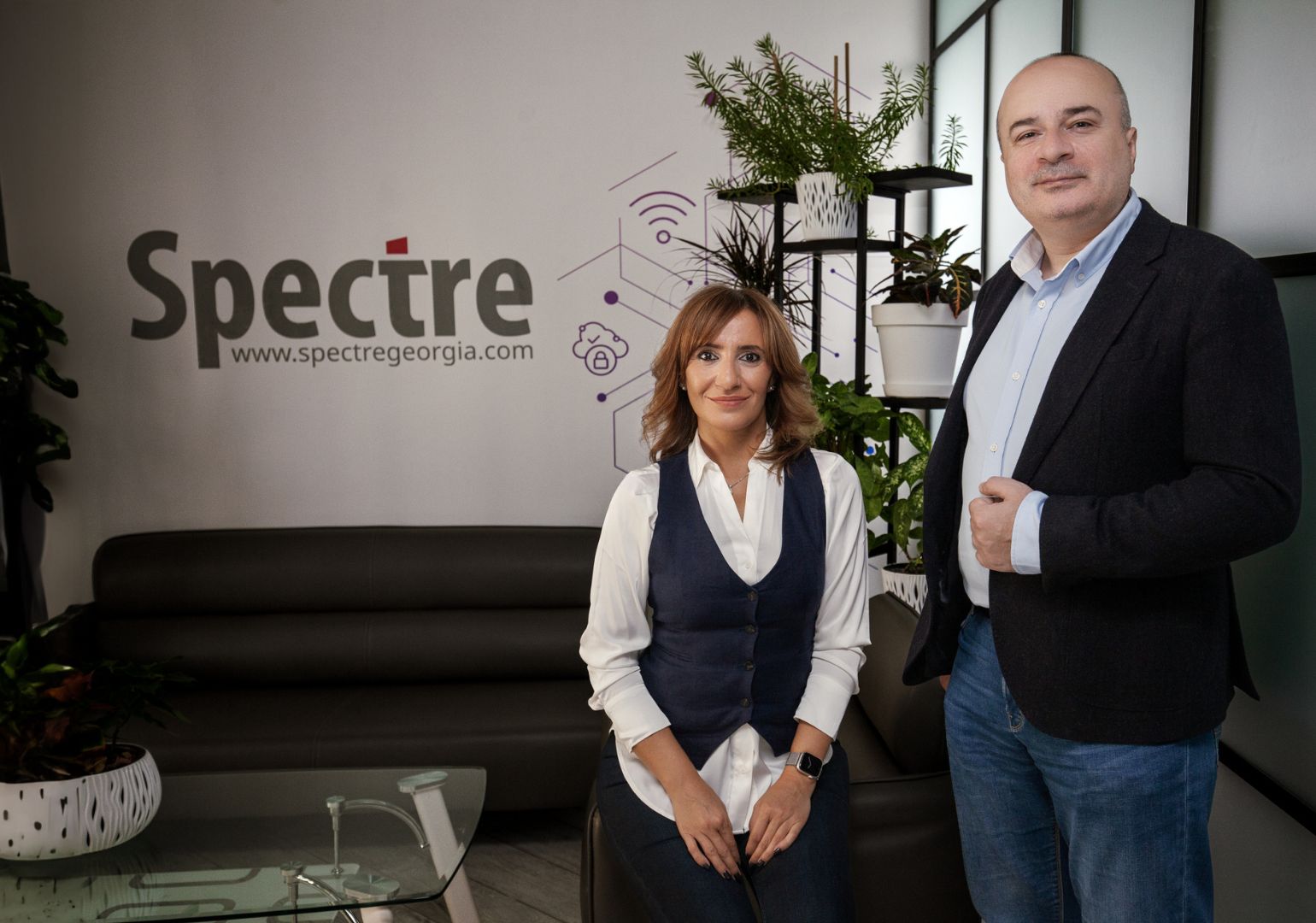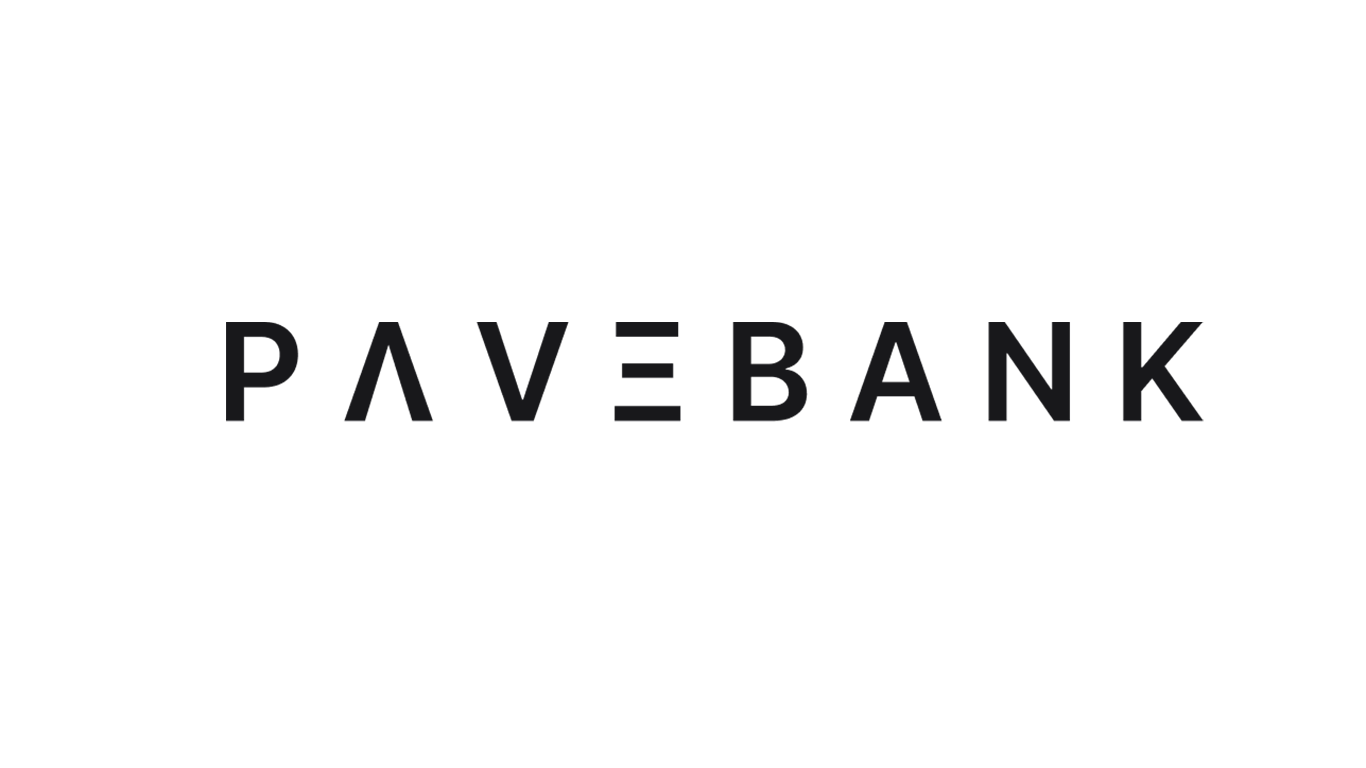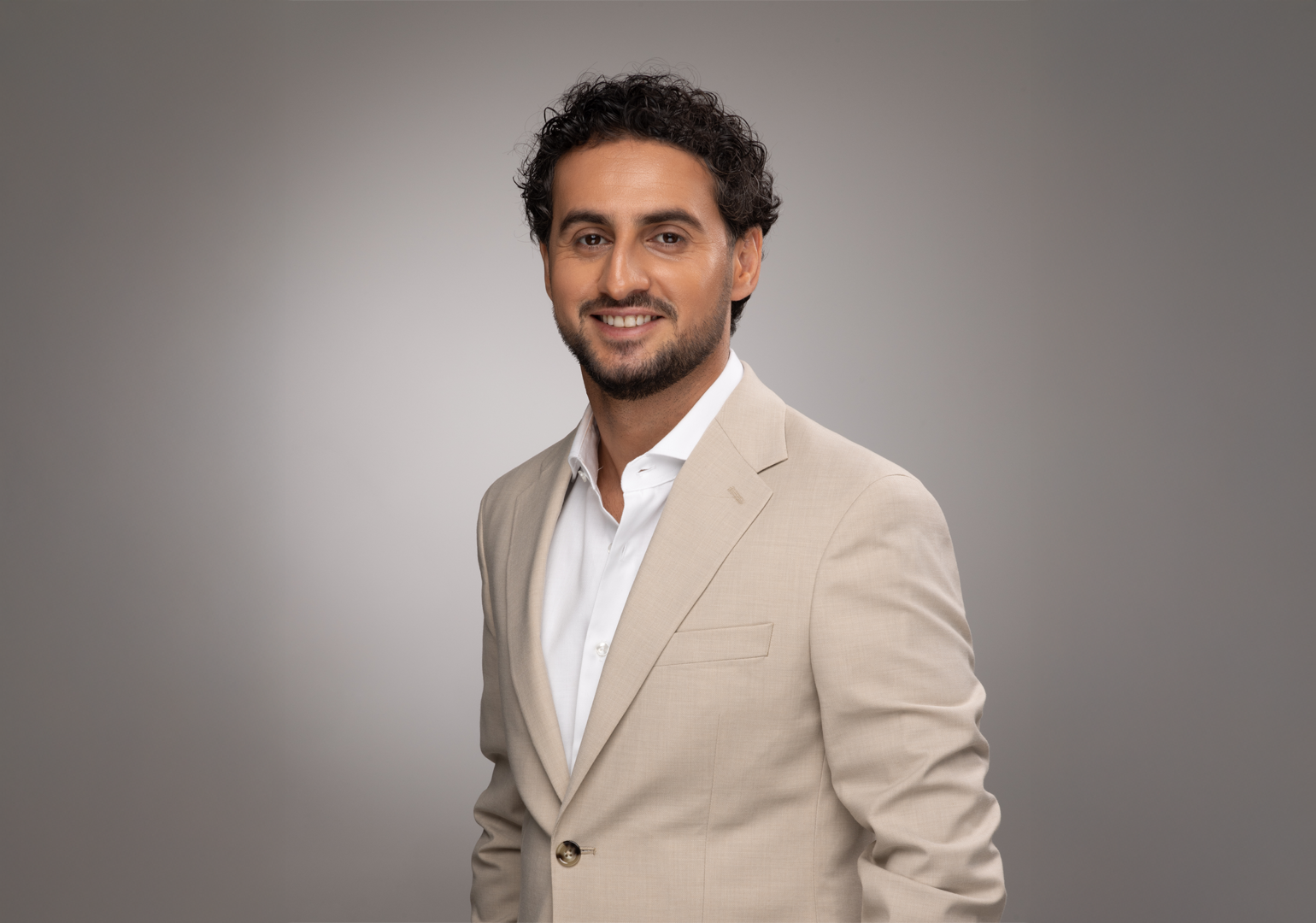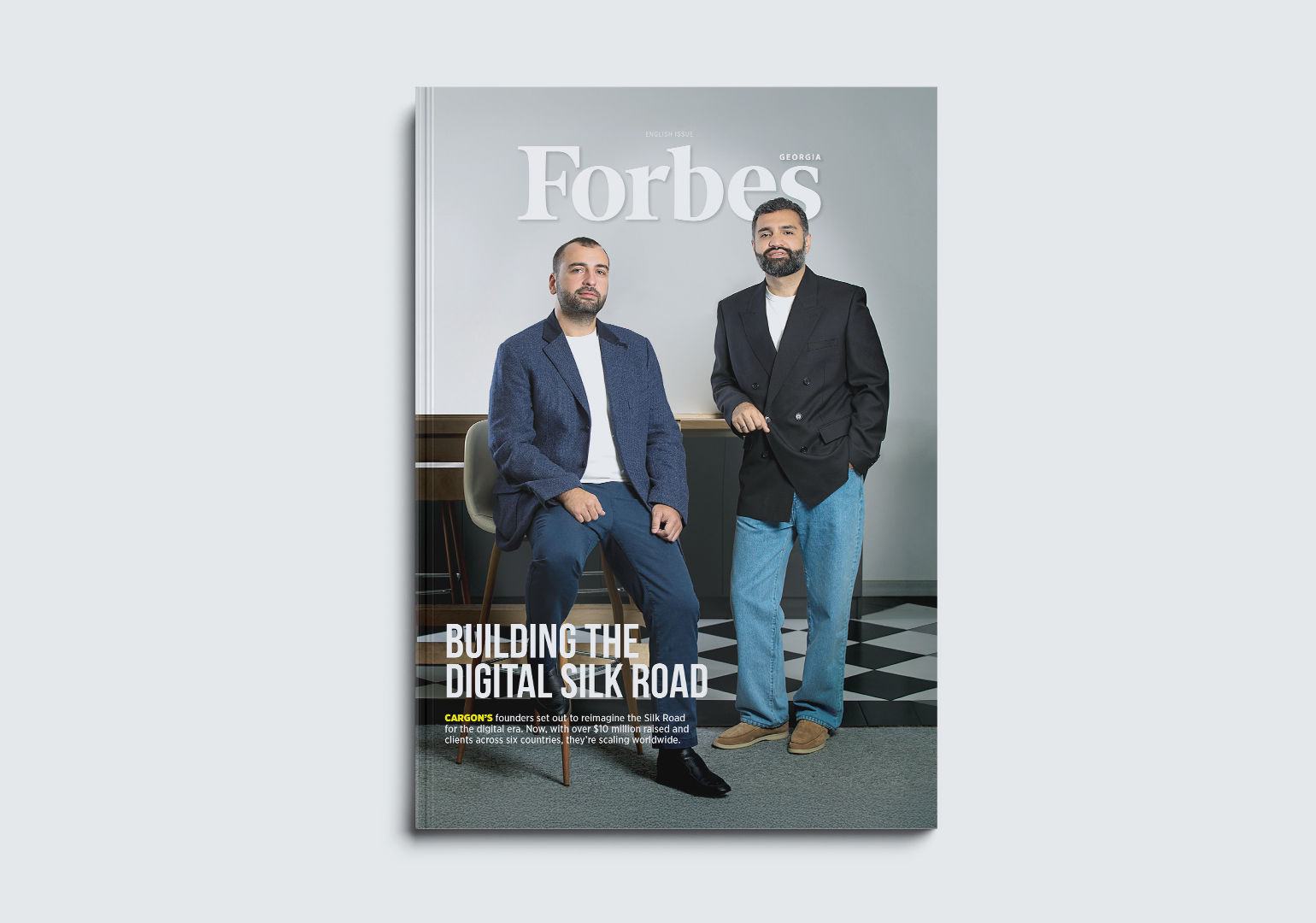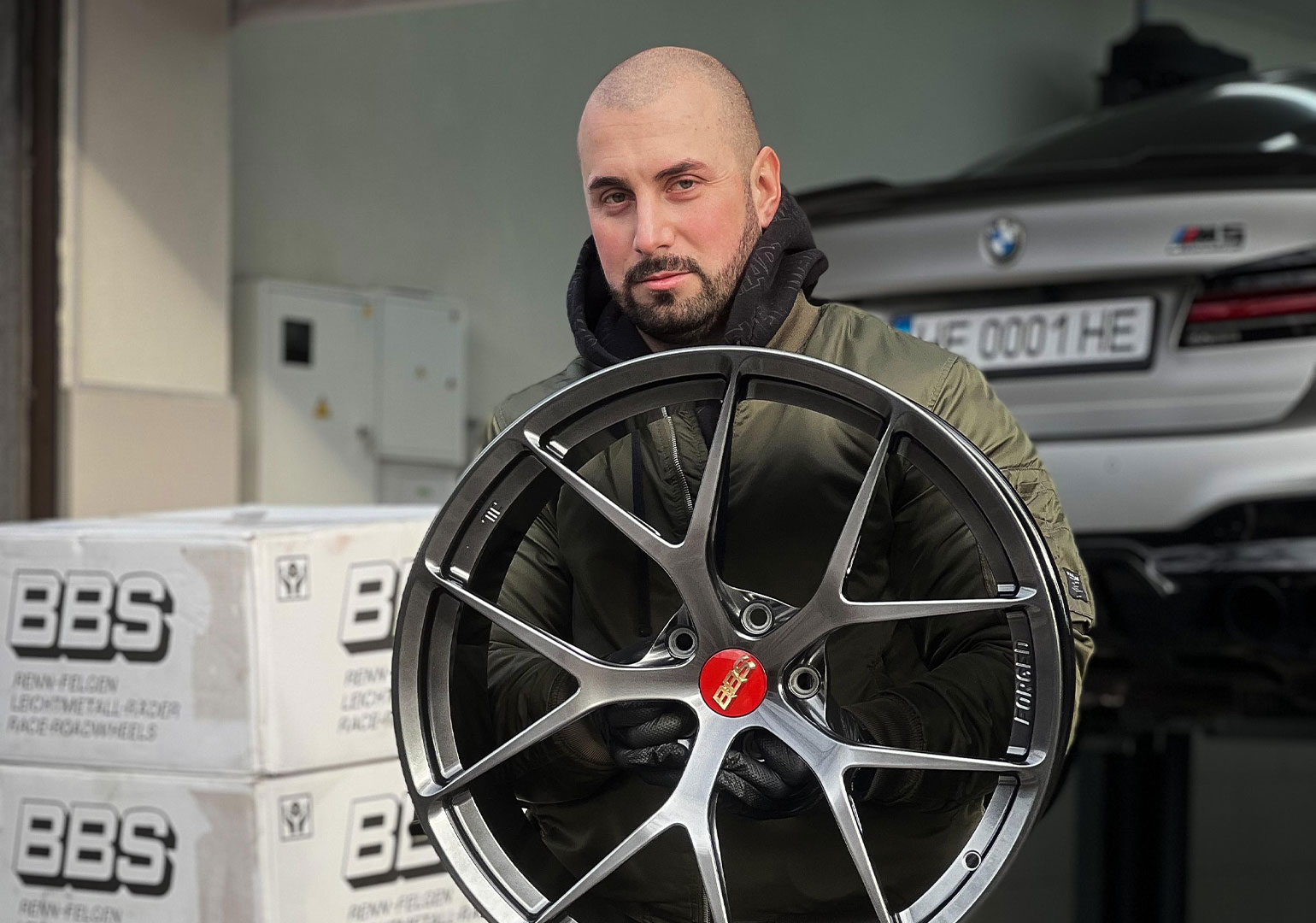Spectre actively appeared on the Georgian market seven years ago and started offering a variety of technological services for businesses. Over time, along with changes in market trends and demand, the company refined its business model and turned from a classic IT integrator into a technology partner.
About the new business model of Spectre and how the company turned from an IT integrator into a technology partner, its founders, Natia Tsintsalashvili and Karlo Matitaishvili, spoke to Forbes Georgia.
What was the main motivation for founding Spectre? What challenges did the market face during the creation of the company?
Natia: The main motivation was the lack of highly qualified personnel on the Georgian market in the technological field. According to our observation, the local IT-market needed professionals with holistic skills, who could not solve a specific problem, but could see the gap from a wider perspective. This was the biggest challenge facing the business at the time. There were only solutions adapted to certain needs, and the perception of the whole picture, in most cases, was not done.
In addition, according to our observations, resources were distributed irrationally. A lot of time, human and financial resources were spent on solving one problem. After all, a business challenge may have been solved in a way that didn’t work out as a whole.
When this challenge arose, we felt it was right to form a group of multifunctional and holistic people who could see all the tasks and problems from a broad angle and learn what the business needed to properly and effectively manage its processes. Therefore, we decided to create a company that would unite people with many years of professional experience. This is how Spectre was created.
What scale has the company reached since its founding until today?
Natia: Spectre is already seven years old. During this period, we were able to gain the trust of both Georgian and international companies. Among our partners there are many famous and successful brands represented in Georgia. In addition, many networked international organizations, which have branches throughout Georgia, have expressed their trust in us. We provide technological support to all their branches. Currently, Spectre covers the entire country, all regions. The services we offer are attractive to partners, as Spectre helps them avoid wasting additional local resources, both human and monetary. This gives them the opportunity to invest directly in their own business and entrust Spectre with the responsibility for technological processes, continuous and proper management of procedures.
What are the current trends in the Georgian IT market?
Karlo: Currently, the market is somewhat saturated and there is a tendency to move from purely hardware solutions to service-oriented ones. In recent years, technology has become cheaper and more accessible. Many providers have emerged, and at the same time, cloudy technologies have evolved. If until now we had tangible infrastructure, now it all goes to the “clouds”. Against this background, obviously, the service direction has been given greater importance, I mean the sale of knowledge and expertise and not only the sale of iron.
What can you tell us about the competition in the market?
Karlo: Engineering resources in Georgia are very scarce. There is a shortage of specialists in all areas of technology. The unemployment rate in the country is high, but at the same time there is a shortage of qualified personnel, since it is one thing to learn programming and another to become a programmer. Therefore, there is competition in the human resource search market.
Natia: In the country, in parallel with the lack of staff, there is an active struggle to recruit professionals. This makes having IT personnel in the company rather unstable, associated with certain risks, loss of personnel, etc. Therefore, we came to the conclusion that we must become a reliable technological partner for organizations to ensure business continuity. For them, our service would be safe, they would have a sense of stability and they would not be afraid of losing IT staff.
Was the company’s change in business model driven by changes in market demand?
Karlo: Yes, all this is due to market and technology changes. At the same time, market players have changed. As you know, large companies are characterized by inertia and cannot change quickly, so when we decided to form Spectre, we were focused from the very beginning on these approaches and on taking into account the changes in the market. This is how Spectre transformed from a classic reseller integrator company into a holistic company.
What does a holistic approach mean?
Karlo: A holistic approach implies that we approach the problem comprehensively. It often happens that a client comes with one specific problem, and we tell him in order to solve it, we need to fix another problem. The classic integrator solved only IT issues, in our case everything is different. We go, study the problem and solve it with a holistic approach.
Natia: We consider business needs. The result that today Spectre has a rather important role in the market is due to this approach. We do not consider the problem separately, we look at it from a wide angle.
How does this benefit Spectre’s partners?
Natia: With this approach, we allowed our partners to save human and financial resources, certain other costs and focus on managing their own business, while we took full responsibility for their digital transformation, optimization and automation. This is what determines our important role in the IT market. Considering that our competitors are focused mainly on iron supplies, we are not limited to this. This led to our transformation from a classic IT integrator to a technology partner.
Karlo: I would like to add that with the new business model we also offer consulting services to our clients. We can provide expertise and consulting to partners on many different issues that their business needs at that time. It goes beyond just seeing one problem. In addition, we show clients specific examples of problem detection and resolution.
Natia: When productivity is combined with consulting, it is very attractive to them. We have accumulated a lot of experience, on the example of which we can show them ways to solve the problem. We can confidently say that we are a reliable technology partner for businesses, as we understand exactly the challenges they face and are able to deal with them with great experience.
In addition, we reduce business risks and help it become less dependent on specific people. It is a global trend that organizations adopt IT as a service, do not invest in infrastructure, people, do not think about upgrading this infrastructure, do not have additional procurement specialists, IT managers, do not allocate space for equipment, etc. This makes many processes much easier for them.
Can you recall important projects that helped you gain this experience?
Natia: First of all, I would like to mention that we provide full technological support to the education and medical sectors. A big challenge for Spectre recently was the preparation of a complete technological project for one of the important medical facilities of the country, an infectious disease hospital, where not only the regulations in force in Georgia, but also international standards were taken into account. As a result, very soon, we will get a fairly high standard infectious disease hospital in the country.
In addition, I can tell you about already completed projects. Among them, I highlight the work done for “American Hospital”. We fully provide its consulting work, business and IT-process planning, infrastructure delivery and further support.
Karlo: As for education, today this sector is facing infrastructural challenges in terms of technology. In the case of the Georgian-American University, which is opening a new campus in the fall, we were given the opportunity to plan the project from scratch. We have been actively involved in this project since the construction of the building. We defined infrastructure needs, what services would be necessary, and what requirements we would have to adapt to.
Currently work is underway on another project, the Georgian-American University Center for Simulations and Clinical Skills, which includes virtual training. Accordingly, we will be dealing with an intensive IT user who constantly requires technological support. This will be the first such project in the country.
This is to emphasize that the Spectre team understands business operations as well as challenges in education, healthcare and other fields. Based on the above, it can be seen that we do not look at the problem from the point of view of one field, in a narrow way.
How does Spectre cope with the competition in the market?
Karlo: Because we are a relatively small team, with less than 30 full-time employees, we can take advantage of all the advantages that are typical for a company of this type. For example, due to the fact that the number of people employed in the company is relatively small, the exchange of information is easier and this process takes place quickly. The whole team can work together on certain problems, exchange knowledge in different areas and, as a result, come to the right solution. In contrast, in large companies there are specialized teams that often misunderstand each other and the project as a whole fails.
Our advantage is that we concentrate on a certain segment, I mean the corporate segment, and since we have a small group, therefore, we have less expenses.
Natia: I would like to add here that Spectre is also distinguished by the fact that we are not limited only to gathering knowledge about the services available in the Georgian market. We study and share the experience gained abroad. For example, we were recently in Israel for this very purpose. The purpose of the visit was to study the innovative technologies used in different sectors in the country and bring them to Georgia.
I think our strong point is that we constantly try to develop and keep up with the trends in the world. With this, we help ourselves and our partner companies. Keeping up with changes and trends, especially when it helps the business, is very important. I mean reducing expenses, optimizing resources and increasing profits, as well as ensuring the continuity of business processes.
What sets us apart from our competitors is that we are not dependent on specific companies or organizations. We cooperate with all IT manufacturers operating on the market. This is very attractive for partners, since we do not have to lobby any manufacturer. I should mention here that we also cooperate with such producers who have never appeared on the Georgian market, although they are always available to us. Accordingly, we offer the business the solution that is the most optimal for that period in terms of time, quality and price.
We consider clients as long-term partners, therefore, we do not act on the principle of “selling for selling”, but our slogan is “selling for partnership”.
Finally, tell us about the company’s goals and plans
Natia: We have determined the future plans taking into account the trends in the market. We want every organization to be able to get the maximum benefits from the fact that they do not use their intellectual knowledge and resources to deploy services, but direct it to their own business.
Our future plan is to mobilize intellectual resources so that when our partners need help, we can offer them complete and continuous technological services.
Karlo: Our goal is to help organizations solve business problems without having to think about the process. IT exists on the principle: problem – solution. In business, you set a task and after that the infrastructure is built, but how to build it requires “know-how”, relevant knowledge. That is what we want to bring to companies and organizations.
At the same time, we feel the need to increase the user base. We actively participate in this process by introducing high standards.
Natia: It can be safely said that Spectre is helping to increase consumer awareness. After that, the standard increases on its own, as the needs are met.
